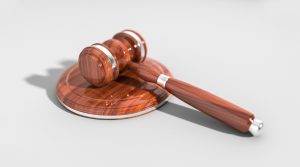DUI vs DWI. You never thought you’d need to Google that phrase, but after last night, you have you too. You and your friends had met up at a usual hangout for a quick drink to catch up. But as the night wore on, the only thing doing catching up was your blood-alcohol-content.
Your friend had suggested you grab a ride home, but you thought otherwise. And now you’re paying for it. As you sift through the sea of information you wonder, “What can I expect in court? I mean, is there any truth to those Law and Order shows?”
If you’ve recently gotten DWI and want to know what to expect in court, read on.
Settings
There are many court dates (called settings) you’re required to attend. They each have a name and a purpose. These court settings can be two weeks or a month apart.
When you need to first appear in court and when you’ll need to come back depends on the court’s caseload. It’s a first-come, first-served situation, so if there are cases older than yours that need to be handled, yours will have to wait.
Below we’re going to go over what happens at each court setting and what you’ll be expected to do.
First Appearance
As the name suggests, this is where you will first appear in court. In this setting, you’ll be asked if you’ve hired a Criminal Defense Lawyer. If you have, your lawyer will then speak with the prosecutor to request copies of any police reports, videos, and results of any breath or blood tests. While this is going on you’ll mostly be waiting.
The district attorney will send all this information over to your lawyer’s office about a month.
Announcement Settings
There will be one or two announcement settings. In this setting, you’re expected to announce whether or not you’ll enter in a plea or if you’re taking your case to trial. Before this date, you and lawyer should have gone over everything carefully so you can be informed on which action to take.
Depending on which court your case is being handled in, you may not be required to attend these settings. If this is the case, your lawyer will go to court on your behalf.
NOTE: Your attorney can’t force you to take a plea or go to court. They can only advise you based on the information they have, and what’s happened to cases like yours in the past.
So if you feel strongly one way or the other about your case, your DWI lawyer has to represent you accordingly.
Plea Setting
If you decide to plead guilty you will be assigned a plea setting. In this setting, you’ll go before the court and formally enter your plea in front of a judge. Then you will arrange to pay court costs and fines and then meet with the probation department.
Here is where you’ll make arrangements to serve out your sentence.
Get the DWI Lawyer You Need Today
Pre-Trial Setting
If you have decided to plead innocent you will have a pre-trial setting. This setting usually happens the Thursday before your trial date. At this setting, you’ll find out if your case can be tried on that date. As we said above, there may be a chance you won’t go to trial on your trial date. The courts handle many cases and if your case is newer, it might not to trial on the first date you were given.
Pre-Trial Hearing
This hearing gives your DWI lawyer a chance to file any motions on your behalf. This hearing also gives the judge a better idea of how long your trial is expected to last.
Trial and Jury Selection
It’s your day in court. Your case will be heard in front of either a judge, or both a judge and a jury. They must determine if you are guilty beyond a reasonable doubt. In most cases, there will be a jury.
The trial will start with a jury selection. In this process, your lawyers will ask potential jurors questions. These questions are to help them figure out which jurors will be the fairest in their judgment of your case.
Jury selection starts with a large pool of potential jurors and usually ends with a small portion of them.
Opening Statements and Witnesses
In this part of the trial, both your DWI lawyer and the prosecutor will present their opening statements. Then the witnesses will be called.
The prosecutor typically calls in any officers on the scene of your DWU or DWI. They may also call any other witnesses to your driving and anyone to administer any breath or blood tests.
Your lawyer will then call any witnesses they may have. You are welcome to testify if you’d like but aren’t required to do so. If you chose not to, the jury will be instructed not to hold that against you.
Aftermath
After everything is heard and the jury finds you guilty, you’ll then move on to punishment and sentencing. During this process, the state may bring up prior criminal history if you have one.
You will then select if you want the judge or jury to assess your punishment. Some elect the judge because it may be easier to predict what they’ll asses. Others pick the jury because the jury might give a lighter sentence.
Whatever you decide, your lawyer should give you the pros and cons to each option so you’ll know for yourself which is best.
If you’re not found guilty, you may get your records expunged by expunction attorney.
Hire DWI and DWI Lawyer, David Hunter Today!
If you want to know more about DUI vs DWI or think you need a DWI lawyer, David Hunter can help. David’s extensive experience as a trial lawyer and Texas Judge have given him a unique perspective on the Texas criminal justice system that allows him to provide a top-notch defense to each and every client. He handles DWI cases regularly and knows exactly what to do so you’ll spend less time in court and jail.
Call (281)-265-1515 or click below to schedule a free consultation and see how David Hunter could help you with your case today!
DWI: What to Expect in Court | The David Hunter Law Firm – Sugar Land, TX






